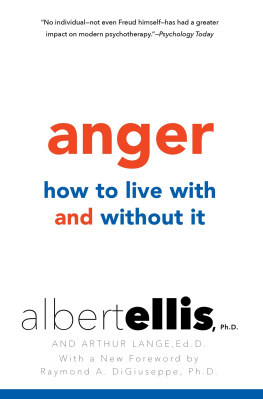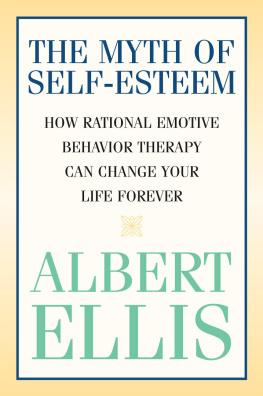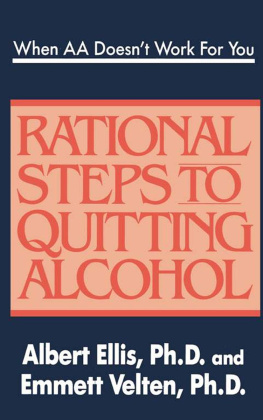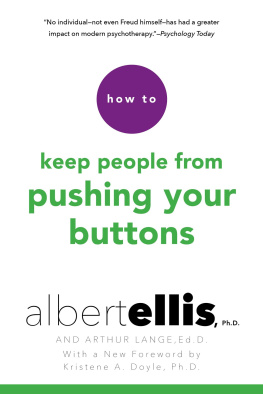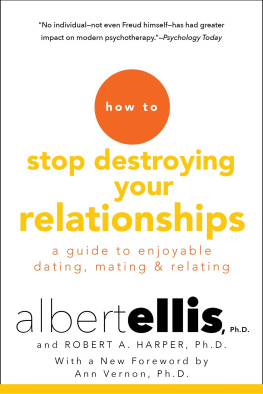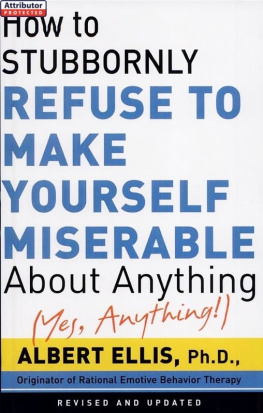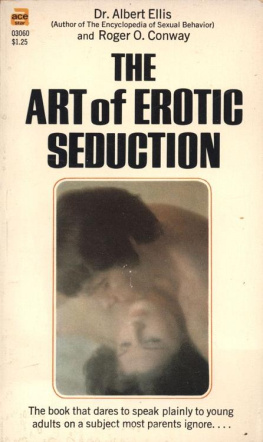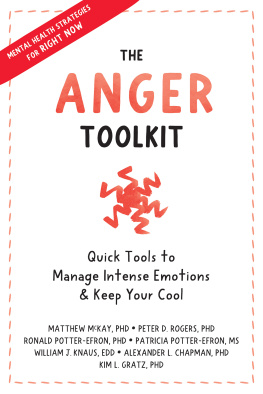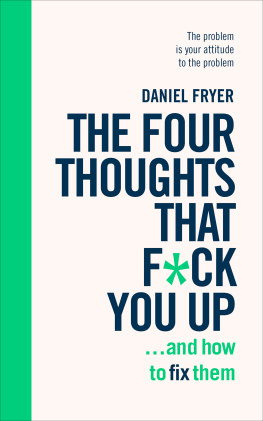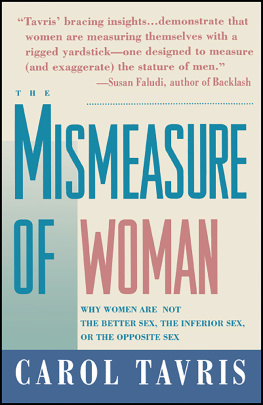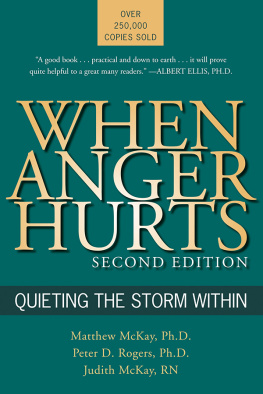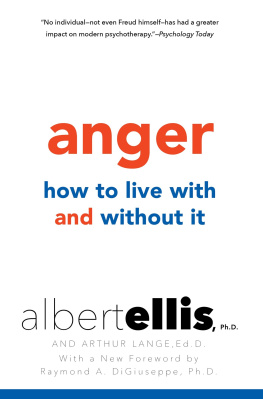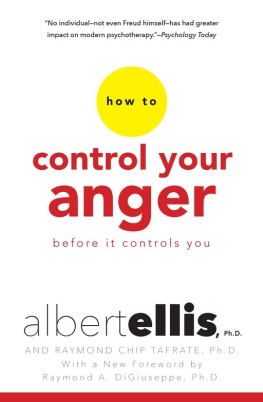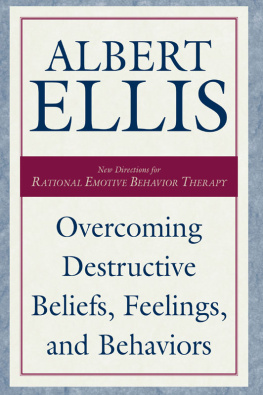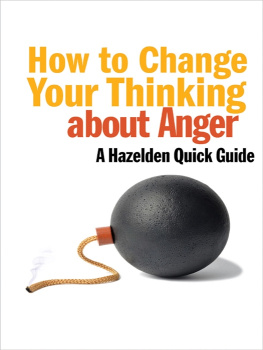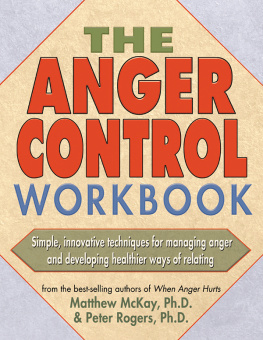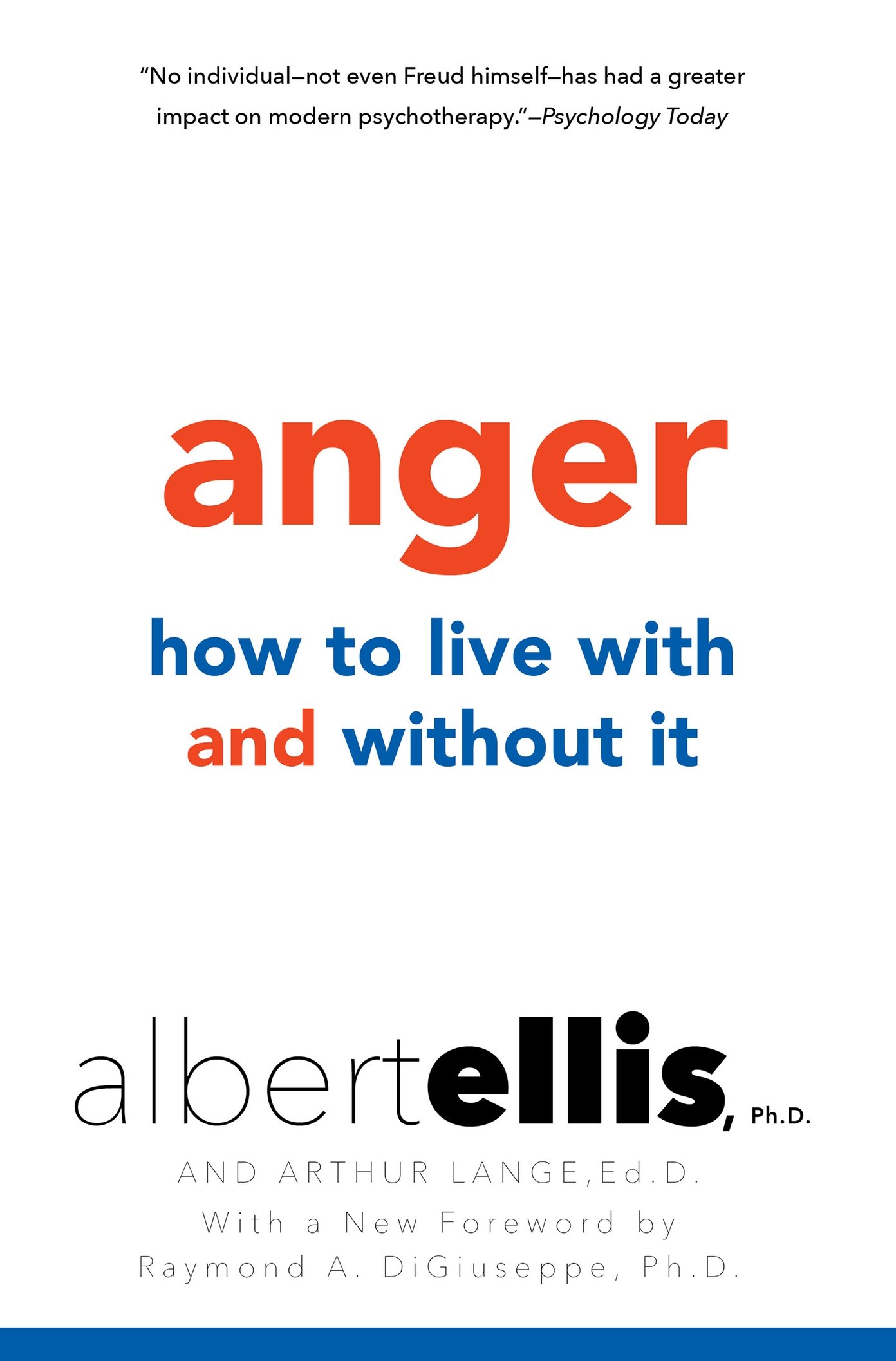Albert Ellis - Anger: How to Live with and without It
Here you can read online Albert Ellis - Anger: How to Live with and without It full text of the book (entire story) in english for free. Download pdf and epub, get meaning, cover and reviews about this ebook. year: 2017, publisher: Citadel, genre: Religion. Description of the work, (preface) as well as reviews are available. Best literature library LitArk.com created for fans of good reading and offers a wide selection of genres:
Romance novel
Science fiction
Adventure
Detective
Science
History
Home and family
Prose
Art
Politics
Computer
Non-fiction
Religion
Business
Children
Humor
Choose a favorite category and find really read worthwhile books. Enjoy immersion in the world of imagination, feel the emotions of the characters or learn something new for yourself, make an fascinating discovery.
- Book:Anger: How to Live with and without It
- Author:
- Publisher:Citadel
- Genre:
- Year:2017
- Rating:3 / 5
- Favourites:Add to favourites
- Your mark:
Anger: How to Live with and without It: summary, description and annotation
We offer to read an annotation, description, summary or preface (depends on what the author of the book "Anger: How to Live with and without It" wrote himself). If you haven't found the necessary information about the book — write in the comments, we will try to find it.
CLASSIC SELF-HELP FROM A RESPECTED PIONEER OF PSYCHOTHERAPY
Anger. Its one of our most basic, and often most destructive, human emotions. And in todays world, its a constant, escalating force, from road rage to domestic abuse, from teen violence to acts of terrorism. More than ever we need effective ways to live with it, understand itand learn to deal with it. This landmark book from world-renowned psychotherapist Dr. Albert Ellis, creator of Rational Emotive Behavior Therapy (REBT), shows you how.
Presented in a simple step-by-step program that anyone can master, the proven, time-tested principles of REBT teach you to manage and even eliminate anger, without sacrificing necessary assertiveness. Here youll discover:
*What exactly is anger, and must you feel it?
*How you create your own anger*Methods of thinking, feeling, and acting your way out of anger
*Why holding on to anger is sometimes funand how to let it go
*How to use REBT to cope with tragic events that are far beyond our control
and much more, including numerous real-world case studies, plus a comprehensive, critical analysis of the various approaches to this age-old problem. Whether at home or at work, in a personal or political context, this breakthrough approach will enable you to take control of the anger that can stand in the way of success and happiness.
Albert Ellis: author's other books
Who wrote Anger: How to Live with and without It? Find out the surname, the name of the author of the book and a list of all author's works by series.

